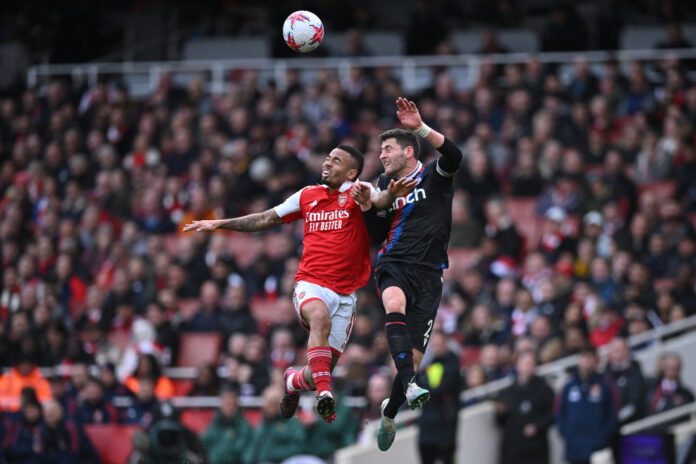Throughout Ramadan, many Muslims around the world find themselves counting down the hours till sunset when they can devour a lavish iftar.
Now imagine this same act of endurance as an elite athlete competing in intense professional sport.
For the first time, the English Premier League and Football League this year have asked match officials to cater to the needs of Muslim professional players.
With the Premier League restarting this weekend after the international break, the English Football Association has advised referees to provide an opportunity for Muslim players to break their fast during a match.
As the sport becomes more global and top athletes join from a range of backgrounds, it is inevitable that the presence of practicing Muslim footballers will increase in football. From Liverpool’s Mohamed Salah to Chelsea’s N’Golo Kante, some of the Premier League’s biggest superstars are devout Muslims.
During Ramadan, these athletes are pushed to their limits. Their normal training regime, which includes strict nutritional diets and regular intense physical sessions, is sent into disarray. With no food or drink through daylight hours, players’ energy levels can vary drastically during the Muslim holy month.
The move by the Premier League — one of the most lucrative sporting outfits in the world — to cater for its Muslim participants is not only a show of acceptance and inclusivity but also takes a stand against racism and islamophobia.
“The Premier League is the best for Muslim players to be in,” said Everton’s Abdoulaye Doucoure when speaking to BBC Sport. “We feel very confident here, very accepted.”
Such signs of progress and acceptance by the Premier League show that things have come a long way from the time when prejudiced spectators would describe images of Muslim fans praying at stadiums as a “disgrace.”
This year will not be the first during which a Ramadan pause takes place in a Premier League match. In 2021, during a late kick-off match between Leicester City and Crystal Palace, an agreement between the clubs allowed for an iftar break.
This year, however, the Premier League has made such a pause a widespread guidance for all late kick-off matches, allowing Muslim players to take on energy gels and rehydrate themselves as soon as the sun sets.
However, there has been no evidence that fasting interferes with a player’s ability to perform at an elite level. A study by British sports university Loughborough concluded that “the available evidence indicates that high-level athletes can maintain performance during Ramadan.”
One prime example is Karim Benzema. In Real Madrid’s Champion’s League-winning campaign last year, he sensationally scored a hat-trick against Chelsea after fasting all day. The recommendation from sports scientists, however, is that “physical training, food and fluid intake, and sleep, are appropriate and well controlled” during Ramadan.
Sadio Mane, speaking to beIN Sports last year, described how Liverpool catered to his and his fellow Muslim teammates’ needs during Ramadan.
The players were monitored by the club’s nutritionist during pre-match preparations, while coach Jurgen Klopp agreed to reschedule training sessions to facilitate an easier Ramadan period for the team’s practicing Muslims.
This year, other clubs have taken this inclusivity to another level. Teams such as Chelsea and Brighton have for the first time organized open iftars in their stadiums; welcoming both Muslims and non-Muslims alike to break their fast, build a more hospitable community and learn about cultural differences.
Growing up as a Muslim football fan, it rarely felt that we were welcome at such sporting events. From champagne celebrations to a lack of understanding of what Ramadan means, I could even sense the divide at university-level football.
It is heart-warming to see that the English FA has scrapped champagne celebrations at cup finals, and has now provided Muslim players with appropriate and necessary breaks during Ramadan.
Let’s hope other leagues and sports around the world take a leaf out of the Premier League’s book.

